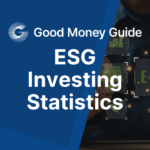Almost definitely yes, commission-free stockbroking is a marketing gimmick.
There is no worse way to compete on anything than to give it away for free. Any sales manager will tell you that the worst salespeople always discount. Because when you can’t offer anything different the only thing you can do is make it cheap.
I didn’t learn much at school. There are probably two things that stick out from my business studies courses. First is that when people walk into shops there are more likely to look left rather than right (or maybe the other way round). And that if you are setting up a business you either have to make it cheap or make it different.
The problem with investing is that you can’t really make it different. Yes you can dress it up with colour schemes, fancy widgets and snazzy apps. But what you can’t do it change what you are selling. And what you are selling is shares in listed companies.
Today, it’s actually pretty easy to set up a stockbroker and start giving stuff away for free. It’s great if you’re playing the fundraising game. Therefore you don’t really intend to make any money, have some seriously deep pockets and are planning to be long gone having sold out by the time the nasty business of generating a profit is discussed.
There is no unique product for investing. Everything a broker sells people can buy elsewhere.
The investment industry is one of the most competitive and regulated industries in the world and the cost of acquiring new clients has risen exponentially.
A decade or so ago the cost of acquiring a new CFD client was around £400, it’s now well over £1,500.
Why?
Because the amount of traders is growing slower than the brokers that are set up to serve them. Essentially, in the UK anyway, thousands of brokers are competing for the same client pool of around active 150,000 traders.
There isn’t any point in setting up a broker to sell it because there is such a cross over of client bases. Tim Hughes, CEO of TigerWit said when we interviewed him about lack of consolidation in the industry,
The major reason for this is that most clients have multiple accounts, and this overlapping client base means the economics of any merger don’t work. The data shows that every CFD account holder has something like 2.3 accounts on average. Therefore every broker’s client base is shared and overlapping, to some extent, with everyone else’s.
So why are brokers offering zero free commission?
Some stockbrokers are under the impression that investors will eventually pay a monthly subscription to get better fills. But having run a UK based investor subscription business for five years, I can tell you categorically that people in the UK do not pay subscriptions for investment services.
People invest to make money, not spend it.
Most established brokers like Interactive Brokers with IBKR Lite are offering zero commission stockbroking for one reason and one reason only. Bums on seats. Or client acquisition to be proper.
It’s very difficult for brokers to differential themselves now. They can’t give advice or even implied advice. They can’t offer welcome bonuses as the banks do for switching accounts. They can’t compete on margin rates. They can’t offer access to markets that others can’t because despite what people say finance is already democratised. Anyone can pretty much buy whatever they want, whenever they want. Of course, if you want to buy £100 worth of stock, it’s going to cost you more in percentage terms that someone buying £1,000.
There are some products that retail investors can’t access, but that’s mainly due to the constraints of liquidity and appropriateness.
How can stockbrokers differentiate themselves from the competition?
So the only thing left to entice new customers through the door is to reduce the costs of access. In the hope that as Millenials start to invest, some of them will get rich and turn into significant revenue-generating customers as they stick with a stockbroker for life.
The problem new free stockbrokers face is that the market is limited to main market stocks. It’s odd there seems to be a move for people only wanting to invest in either the most established companies in the world or ones that have just started up through equity crowdfunding. Everything in the middle seems to get overlooked. If you want to buy a smaller stock on the AIM market, these free stockbrokers can’t provide access to it.
It’s actually a hugely complex process managing, administering, clearing and holding stocks for multiple clients across multiple exchanges. There can’t just be one exchange and one process because that would generate a monopoly and not provide best execution.
With investing you get what you pay for. And sometimes it pays to pay. Established platforms like Hargreaves Lansdown or Interactive Investor offer access to pretty much everything you could want to invest in from ETFs, to corporate bonds, to IPOs, to AIM stocks to international stocks and shares.
Yes, it’s great that new fintech providers are disrupting the market, but is it really one that needs disrupting? Yes, the commissions could be lower, but to be fair, if you want lower commissions just phone up your broker and ask for them. They know you can go elsewhere so ask for a discount and you’ll probably get it.

Richard is the founder of the Good Money Guide (formerly Good Broker Guide), one of the original investment comparison sites established in 2015. With a career spanning two decades as a broker, he brings extensive expertise and knowledge to the financial landscape.
Having worked as a broker at Investors Intelligence and a multi-asset derivatives broker at MF Global (Man Financial), Richard has acquired substantial experience in the industry. His career began as a private client stockbroker at Walker Crips and Phillip Securities (now King and Shaxson), following internships on the NYMEX oil trading floor in New York and London IPE in 2001 and 2000.
Richard’s contributions and expertise have been recognized by respected publications such as The Sunday Times, BusinessInsider, Yahoo Finance, BusinessNews.org.uk, Master Investor, Wealth Briefing, iNews, and The FT, among many others.
Under Richard’s leadership, the Good Money Guide has evolved into a valuable destination for comprehensive information and expert guidance, specialising in trading, investment, and currency exchange. His commitment to delivering high-quality insights has solidified the Good Money Guide’s standing as a well-respected resource for both customers and industry colleagues.
To contact Richard, please see his Invesdaq profile.




